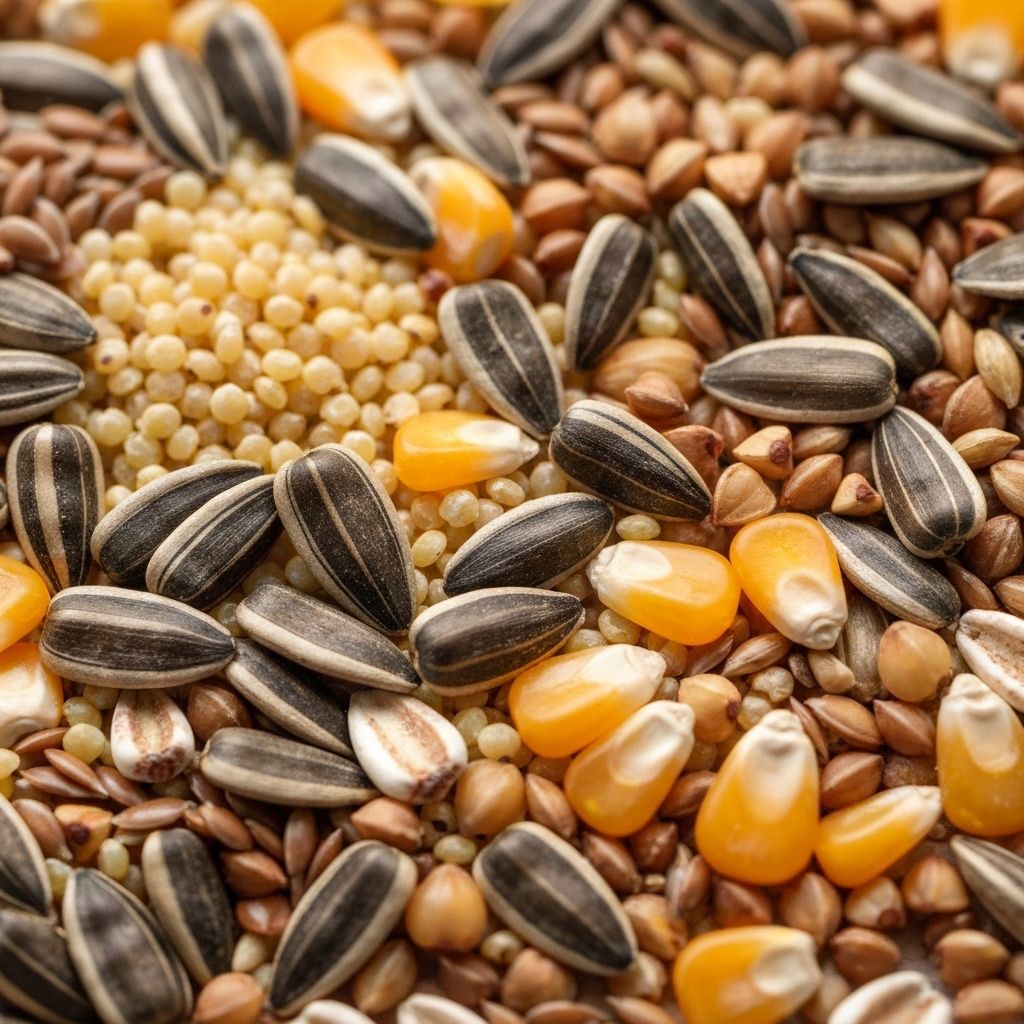Feeding Guide
Comprehensive nutrition information for your feathered friends
Veterinary Disclaimer
The information provided on this page is for educational purposes only and is not intended as veterinary advice. While we share our experience and knowledge, every bird is unique and may have specific needs. If you have concerns about your bird's health or behavior, please seek qualified professional help from an avian veterinarian.
Soft Food
We use this food to vary up our birds diet and spend one with added fruit, vegetables, herbs, calculated egg and animal protein (twice a week protein).
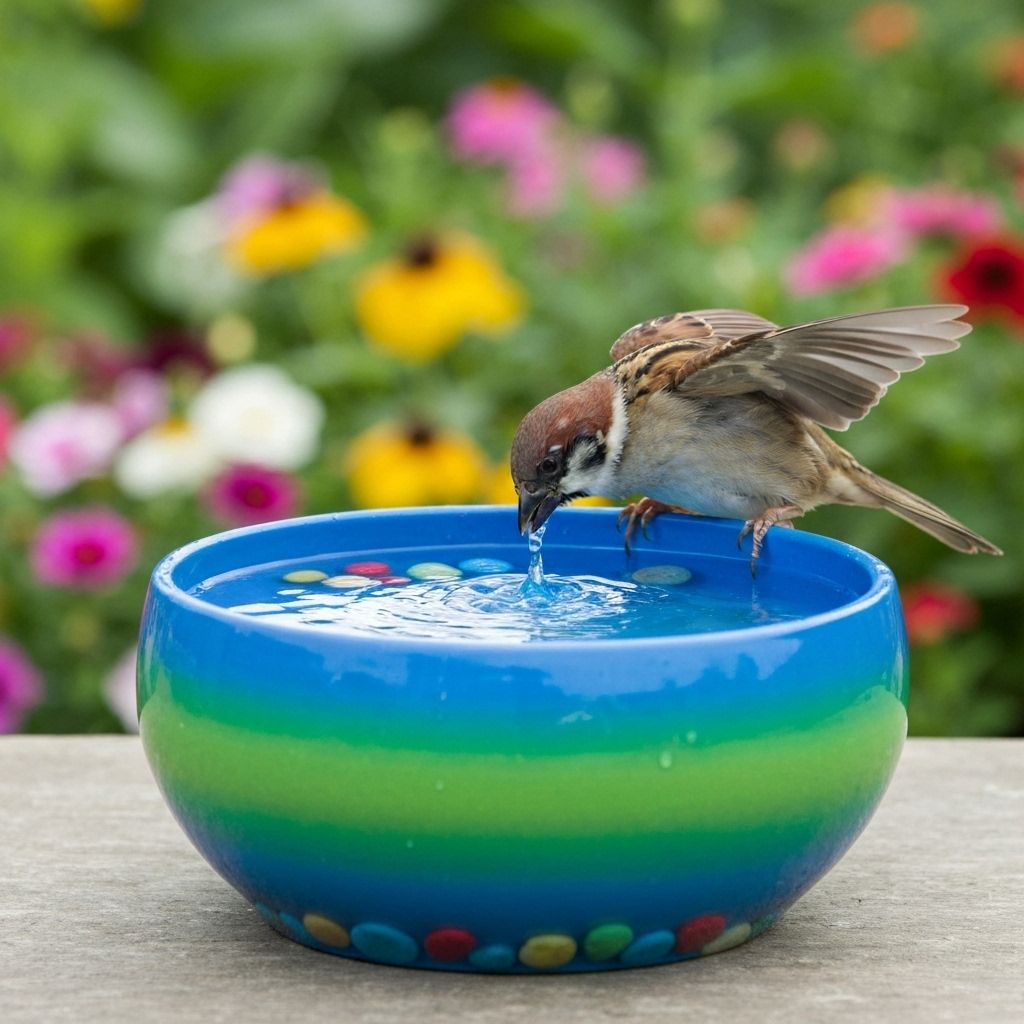
Water
We use this fresh water (harvested rainwater from the roof, passed through 3 filters and UV sterilized). It is changed daily at a minimum. You should do similar or at least provide fresh water for your bird and remember to change the water at least once a day. We have found that if there is a lot of food debris in the water or if the water is dirty, when the bird drinks it, they can get sick. So we make sure the water is clean and fresh at all times.
The water bowl should be large enough for the bird to bathe in if they wish. You may only have bathed water or can let the bird play in it or bathe in it. We always try to encourage our birds to bathe themselves.
Soak mix
This food is only soaked for 8-12 hours in cold water. It does NOT need to be sprouted. It will swell to be softened in the water. The soak should never be left out for more than 12 hours.
Caution:
- • You should only use need this CLEAN container large enough to hold at least double the amount of dry mix.
- • Rinse thoroughly with CLEAN water. You may also choose to do this twice to ensure it is clean.
- • Soak for 8-12 hours in cold water.
- • Rinse it. You can use the leftover water on your garden or pot plants.
- • Leave for 8-12 hours sitting in the water.
- • RINSE THOROUGHLY with clean water then drain off excess.
- • Serve immediately.
If you have a bird that is very messy or throws a lot of food around, you should monitor the food and remove leftovers as they can spoil quickly. In summer it is far too humid for this food type and should be removed within 4 hours. In winter you may choose to offer this food in the late afternoon so it can be removed at night when you are able to.
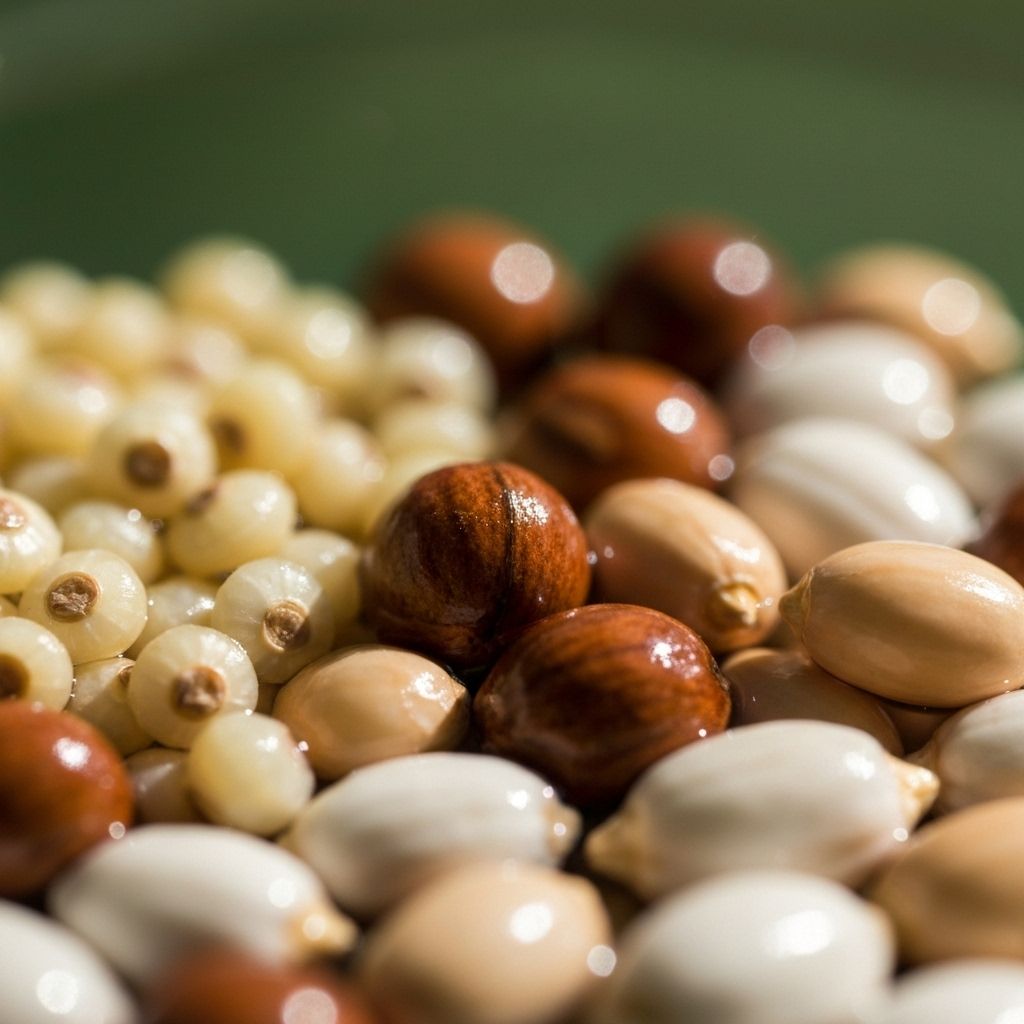
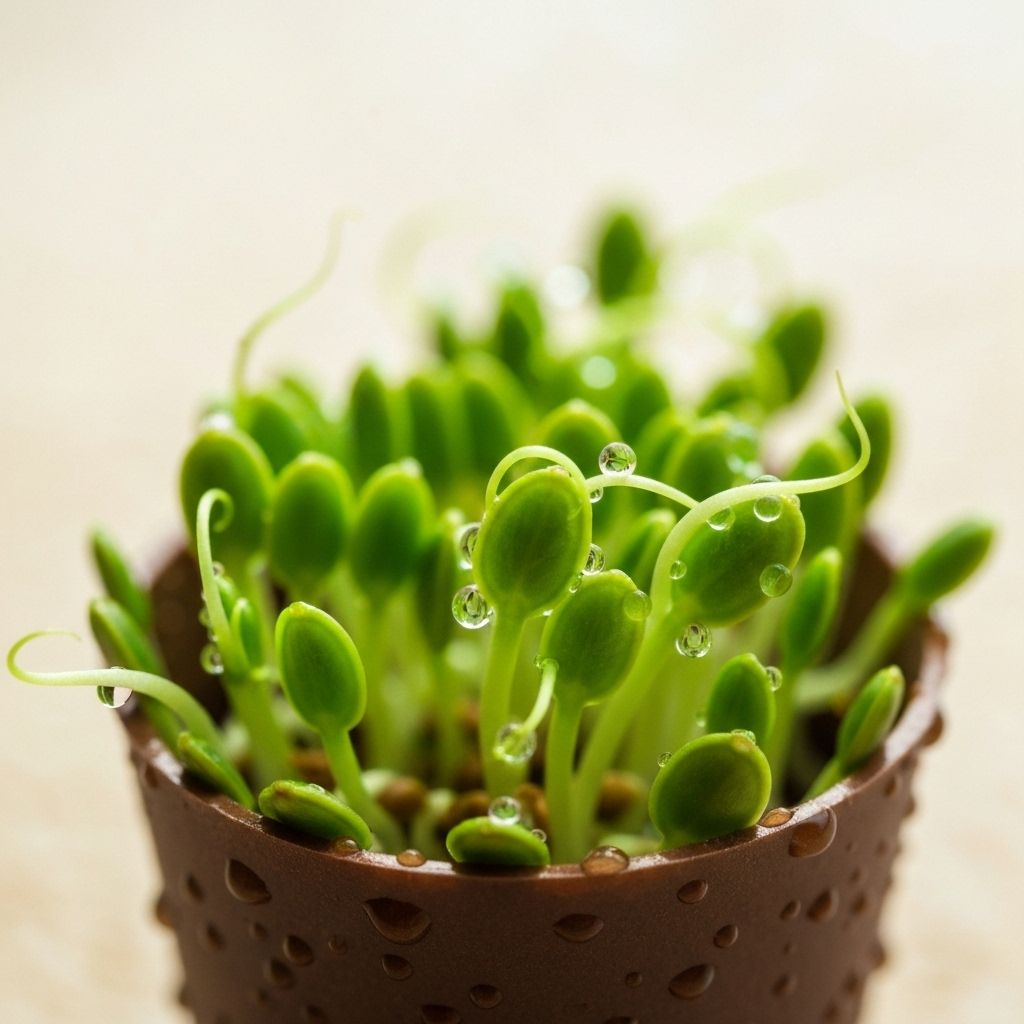
Sprout Mix
This needs to be soaked for 2- 3 hours and then takes 12-72 hours to sprout depending on seed used and temperature in the area (hot and wet is best). BE CAREFUL OF MOULD! YOU CAN ONLY DO IT ONCE. IF IT GOES MOULDY DISCARD THE BATCH AND START AGAIN. DO NOT FEED MOULDY FOOD TO YOUR BIRDS.
Caution:
- • Rinse thoroughly with warm water and then soak with warm off excess.
- • Soak for about 2-3 hours.
- • Soak for about 3-5 hours then drain and rinse again with warm.
- • Drain and about overnight or about 24hr. The sprout after you wash should be about 1/4 to 1/2 longer and should have a small amount of sprout.
- • Rinse with COLD water twice per day.
As with the soak mix it is important the sprout mix you have offered doesn't sit for too long. If it is hot or humid it is best allowed to be out for 4 hours. If it is cooler you may allow it to be out for 6 hours. If you have a bird that is very messy or throws a lot of food around, you should monitor the food and remove leftovers as they can spoil quickly. In summer it is far too humid for this food type and should be removed within 4 hours. In winter you may choose to offer this food in the late afternoon so it can be removed at night when you are able to.
Fruit and Vegetables
Fruits and vegetables can and should be offered. You may vary what you offer or what is seasonal. You want to offer a variety of colours and textures. You can offer raw or cooked vegetables. Some birds prefer one over the other. You can also offer a mix of both. We offer raw vegetables and fruit most of the time. We also offer cooked vegetables when doubling up the mix of the day. We also offer large whole pieces of vegetables and fruit. We also offer small pieces of vegetables and fruit. We also offer a mix of both.
When doubling up the mix of fruit and vegetables you should consider that some greens (kale, you have to wash what vitamins may be high in oxalates. Oxalates can bind with calcium and prevent it from being absorbed. You should either vary the greens you offer or you should consider that the bird balanced and balanced in the long term.
Caution:
High oxalate vegetables include spinach, parsley, chives, beet tops, rhubarb and chard. These should be offered sparingly. Avocado is toxic to birds. Chocolate is toxic to birds. Caffeine is toxic to birds. Salt is toxic to birds. Alcohol is toxic to birds. Onions and garlic are toxic to birds. Apple seeds contain cyanide and should be removed. Stone fruit pits contain cyanide and should be removed. Tomato leaves and stems are toxic to birds. Potato leaves and stems are toxic to birds. Rhubarb leaves are toxic to birds. Mushrooms can be toxic to birds. Dried or uncooked beans can be toxic to birds. Avocado is toxic to birds.
Some birds may have individual sensitivities or allergies. If you notice any adverse reactions after introducing a new food, discontinue it and consult an avian vet if symptoms persist. Always introduce new foods gradually and in small amounts to work them well.
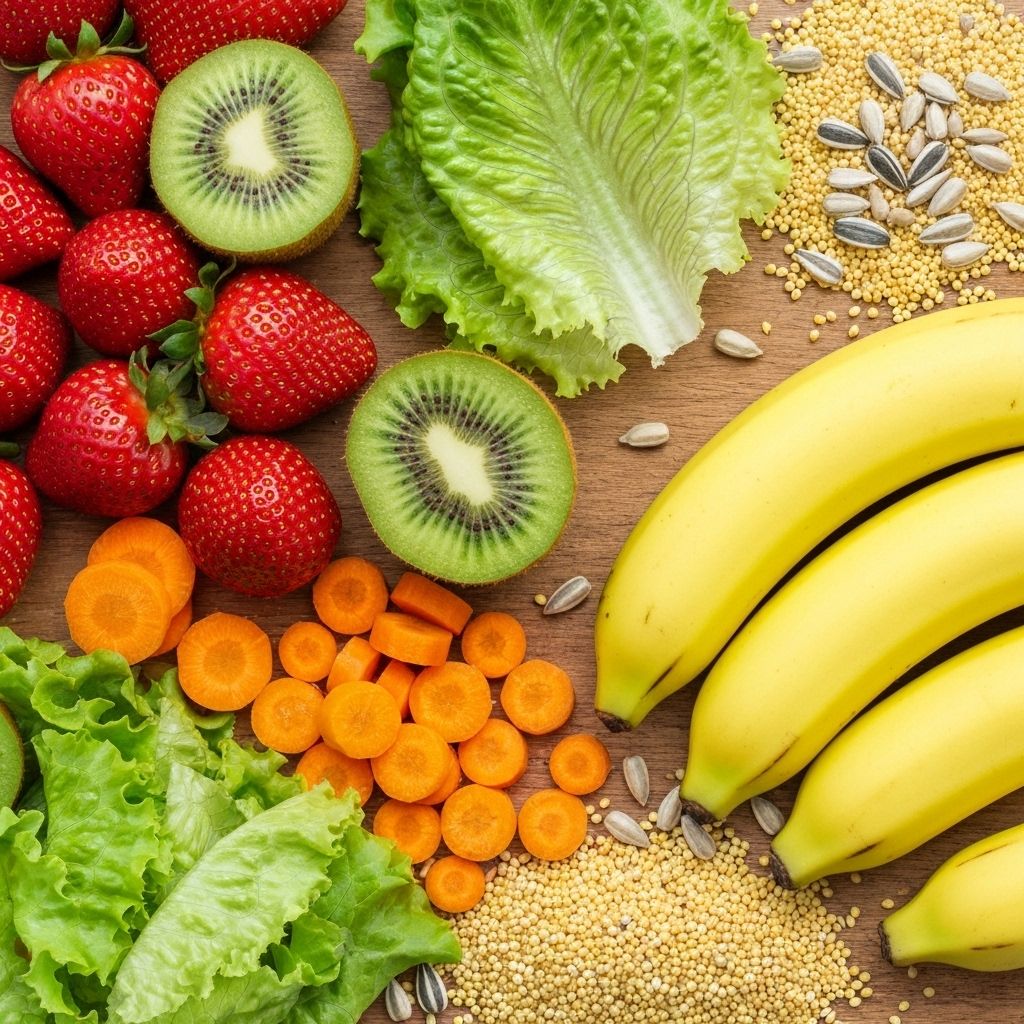
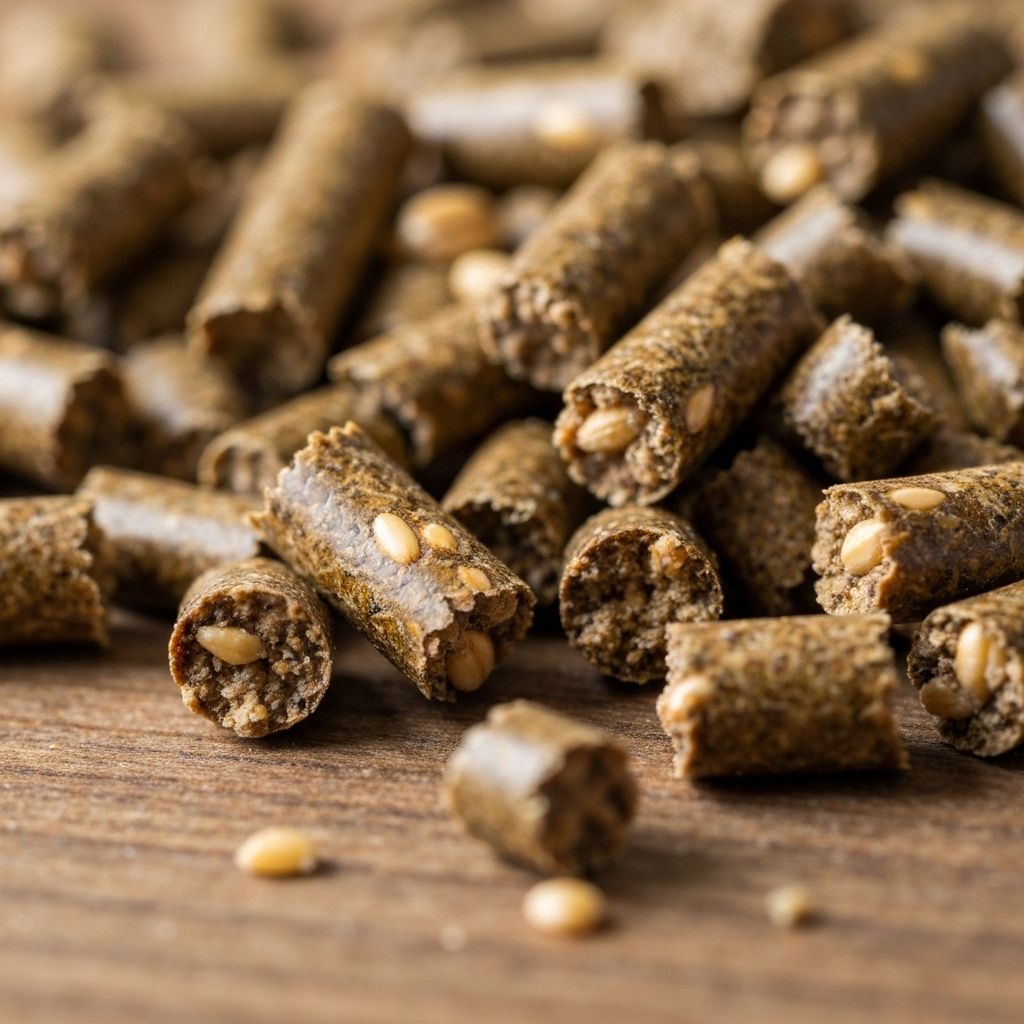
Pellets
We use Vetafarm Maintenance and Breeder pellets. The sprout used is Vetafarm Parrot Essentials. We do not use any other pellets. Breeder pellets are recommended for birds in the lead up to breeding and during breeding season. We never switch the pellets like this unless we are preparing for breeding. For species like African Greys, we have our pet birds in small and the suggest using maintenance style pellets for about 8 months, then for species like African Greys, Eclectus and Cockatoos we use breeder pellets for 4 months.
If pellets are not available, try advice that should be mixed in a lower calorie food for pet birds to prevent the pet from becoming overweight. Pellets should make up about 50-70% of the diet.
Seed
Seed is important to some species' health. We do not feed a large amount of dry seed and we do not use it as the main diet. We prefer to use seed as a treat or as a way to encourage foraging. We use a variety of seeds and we use them in different ways. We use seed in foraging toys, we use seed as a treat, we use seed in training and we use seed as a way to encourage natural behaviors.
For species like budgies and cockatiels, seed can be a larger part of the diet. For larger parrots, seed should be limited to about 10% of the diet. High fat seeds like sunflower and safflower should be offered sparingly. We prefer to use seed that has been sprouted or soaked as this is more nutritious and easier to digest. Seed should always be fresh and stored properly to prevent spoilage. Offering the seed appropriate to the species that is limited amounts where appropriate is important.
